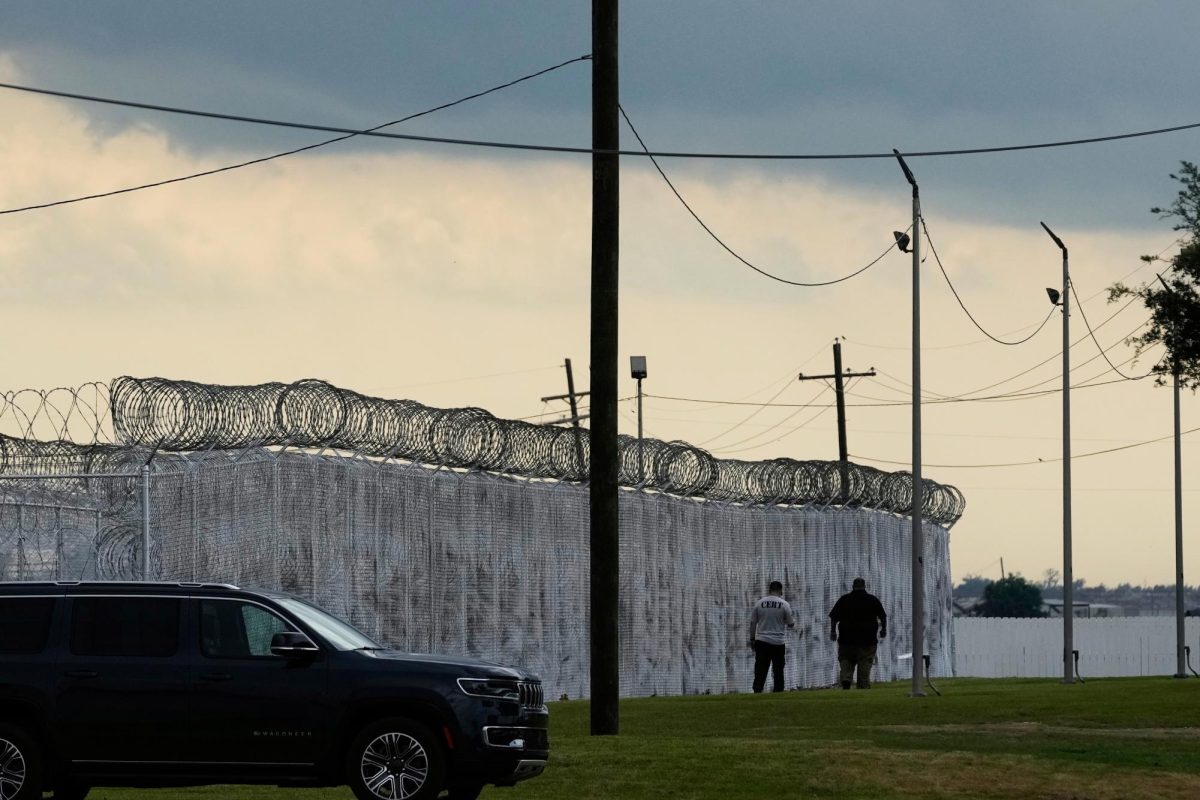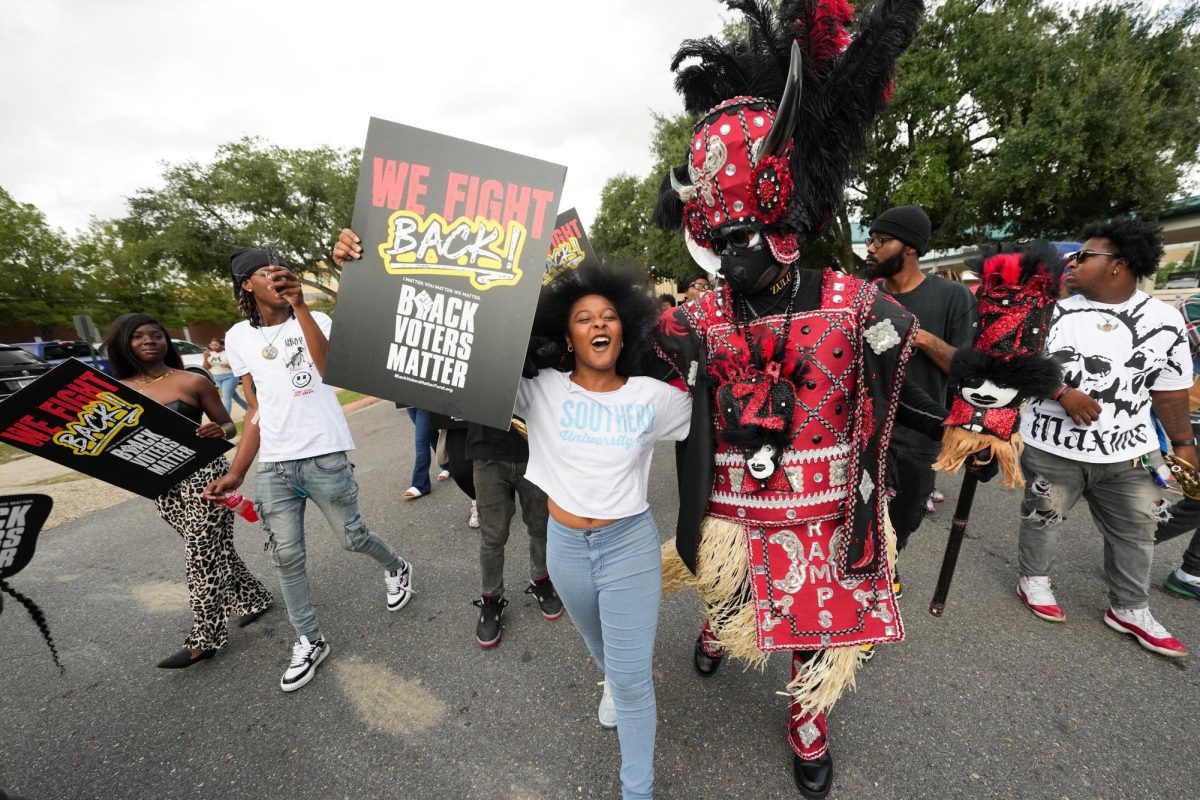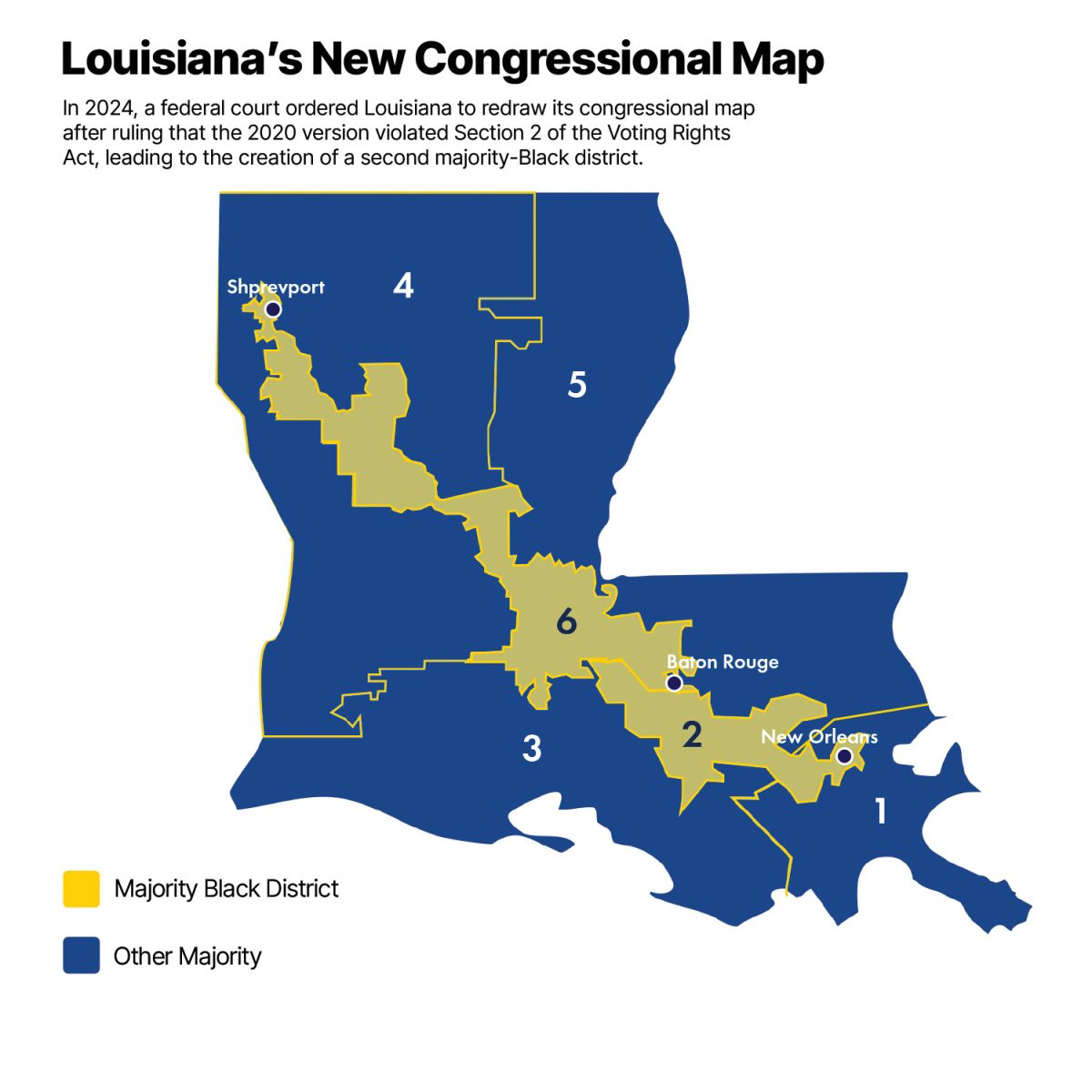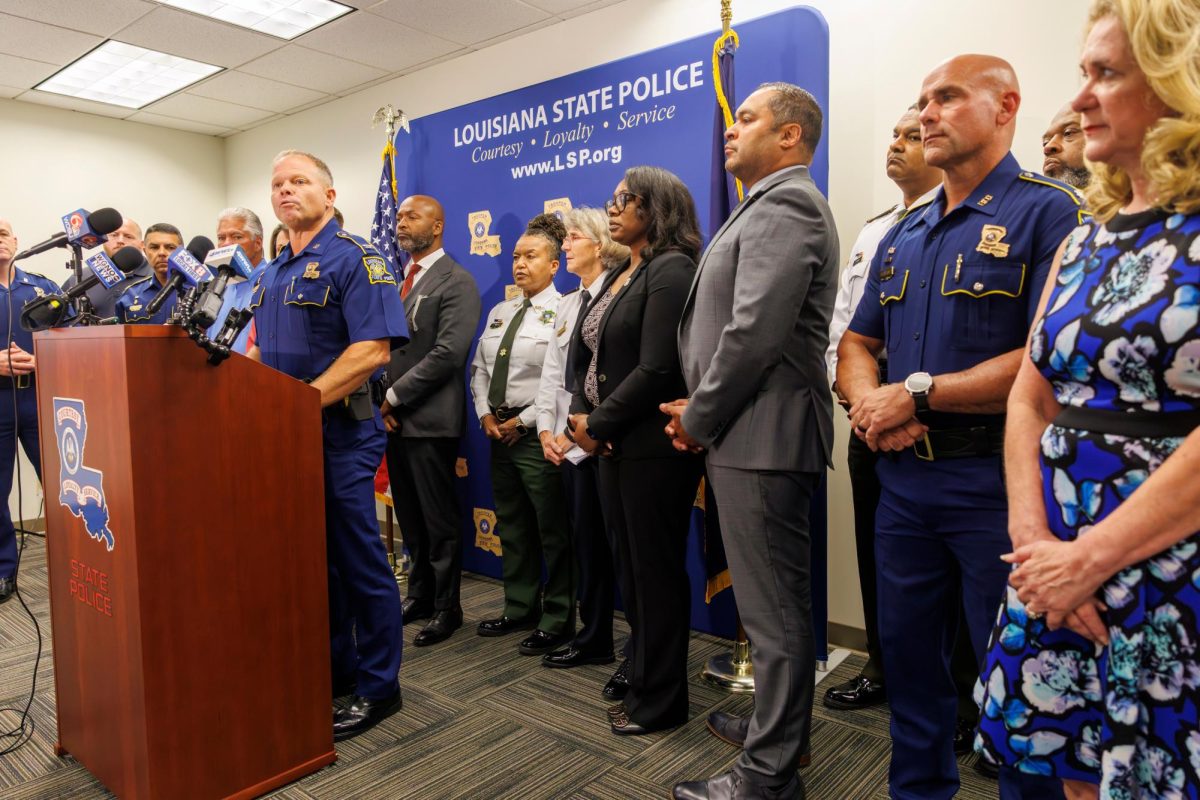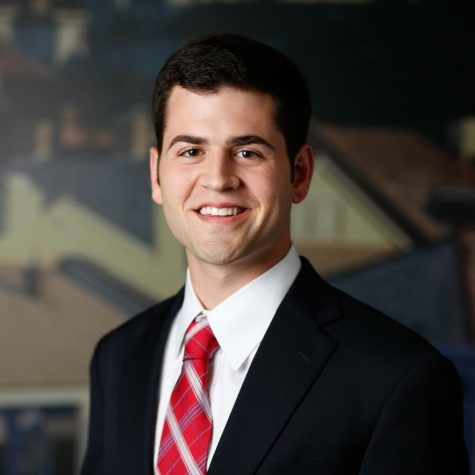Sexual assault could possibly happen to one in four people on college campuses. “Possibly” because experts struggle to pin down a precise number.
“It is so hard to capture stats about sexual assaults because we really don’t know exactly what they are, because you can focus on so many different ones,” Amanda Tonkovich, a therapist at the New Orleans Family Justice Center, said.
While it is a common misconception that sexual assault only happens to a small few, statistics show it can and does happen to anyone. While strictly speaking, females may be more at risk for sexual assault than men, men have a one in sixteen chance of being assaulted on college campuses as well.
Combating on-campus sexual assault is the purpose of the Take Back the Night event at Loyola University New Orleans. On Oct. 27, hundreds of students from the New Orleans university community gathered to listen to speakers openly discuss their stories of sexual harassment and participate in a candle-lit walk through Uptown to Tulane University’s campus.
However, even though hundreds of people stand together for Take Back the Night, you never know who could be a victim. They are our friends, our coworkers, the person we bump into in the hallway and our classmates at Loyola.
A young woman, who chose to use the name Cyril to keep her anonymity, shared her story about sexual assault to let victims of the crime know that they have a voice and that they are not alone.
“I was stupidly on Tinder and some dude invited me to go to a party as a first date, and I was like, OK this should be fun,” Cyril said.
But as Cyril got a little intoxicated things began to get out of hand.
“He started trying to kiss me, and I was like OK, this is fine. Then, he started to grab on me while we were in a public place, and I was like stop,” Cyril said.
He didn’t stop. As he tried to guilt trip her to return to his residential hall with him, Cyril kept refusing. It didn’t help when she found out that he has done this to several other girls as well.
Fortunately she was able to get away before the situation escalated any further.
“I remember slapping the hell out of him and then running away, and that was about it,” Cyril said.
Erin Shapiro, a staff counselor at Loyola and co-chair of Take Back the Night, said when talking to a victim at Loyola who was sexually assaulted, the most important thing is to stay calm. She also said it’s helpful to inform the survivor of the options available to them to help them to make a decision, but to not influence their choice.
“When someone is sexually assaulted, all of their power and control is taken away from them. By giving them their options and empowering them to make the choices they feel are best for them, we help to give them back power and control,” Shapiro said.
For Cyril, she didn’t realize how much the assault was affecting her until a few weeks after the assault occurred.
“I hadn’t been going into work a lot. I felt like I had been failing in my classes because of it,” she said.
After talking to a professor about what happened to her, she was convinced to report her story to the Loyola University Police Department.
However, when the moment came, she wasn’t sure how to handle giving the report. She didn’t want to ruin his life and to be labeled as a victim of sexual assault.
“They took me to a back room, and it was all female officers. They didn’t want any male officers in the room,” she said, which was fine to her, because she had a hard time talking to men.
After asking her to fill out a report detailing who she was, they gave her a piece of paper for her to write down everything she remembered about the assault. The first time when she went to talk with police, she actually forgot her assaulter’s name, so she only gave them a description. Multiple officers interviewed her to make sure her story didn’t change, and then they let her go, stating that someone would contact her soon via e-mail.
Captain Roger Pinac of LUPD said that they report all incidents that occur on and off campus.
If a sexual assault case happens off-campus, Pinac said, the New Orleans Police Department Sex Crimes Unit is contacted if the victim wishes to pursue criminal charges. The police department also encourages the victim to receive medical examination by a Sexual Assault Nurse Examiner.
While Cyril chose not to press charges, she still sees her attacker on campus. Even though they both try to avoid each other, the whole process triggers memories from Cyril’s childhood.
“For three years of my life I was brutally raped by my step-father,” Cyril said.
“You feel like you can’t do anything about it, and you feel kind of worthless.”
Cyril said this is why she believes that survivors’ stories need to be told. So other victims know that they are not alone, but she understands that in the current social climate, it is not always possible.
Tonkovich agrees that our society’s culture does not really support survivors overall, and that we live in a huge rape culture.
“[Victims] are getting a lot of shame and blame from their family and their friends,” Tonkovich said. She continued with that it’s not uncommon for survivors to be told, “Why did you do that, you shouldn’t have been drinking, he’s such a great guy, he wouldn’t do that,” Tonkovich said.
However, Tonkovich said there needs to be a shift on a cultural level in order to prevent sexual assault from happening, not only on college campuses, but everywhere.
“A big misconception is that all the victims are going to act a certain way or look a certain way. Our big thing here, and with most advocacy organizations is to meet the person where they are at,” Tonkovich said. “We’ve all gone out drinking. We’ve all worn a skimpy outfit, and we expect that we are still going to get home safe. The only time we don’t is if a rapist is present.”









